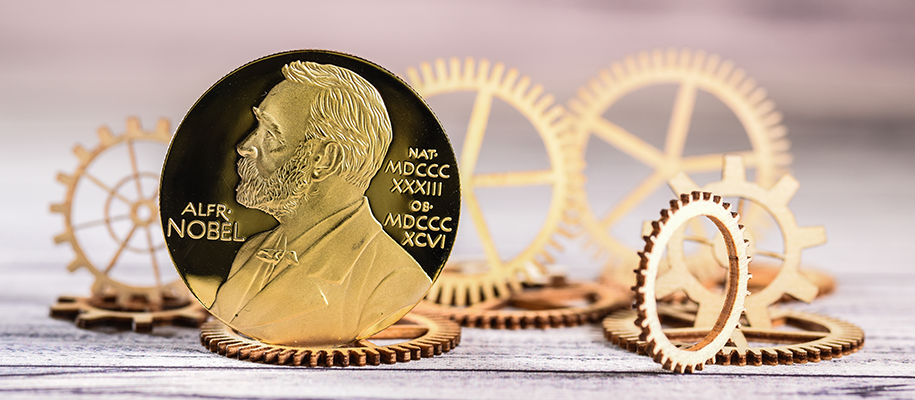Ah, the coveted Nobel Prize! It’s one of the most prestigious awards for excellence in Literature, Peace, Physics, Physiology or Medicine, Chemistry, and Economic Sciences. First awarded in 1901 at the request of Alfred Nobel’s will, these awards have been given to leaders in these fields who have done great service to mankind with their work. Unsurprisingly, many of these incredible people also attended or worked at amazing colleges and universities.
The institutions listed below are some of the best schools that are associated with high numbers of Nobel Prize–winning alumni, faculty, and researchers. They are also schools that CollegeXpress has partnered with to make the college search easier for you! Just click the green “Connect me” buttons underneath each college or university to request more information from them. We'll let them know that you're interested, and then they'll reach out to you so you can learn more about their academic programs, research opportunities, financial aid, and campus life!
Read on to learn a little bit about each institution and some of their Nobel Laureate alumni. We also included other top Nobel Prize–producing schools at the end of this list, because they were just too impressive to leave out.
Please note: The exact Nobel count can vary slightly for each school depending on the counting criteria from various sources, such as faculty vs. alumni.
Johns Hopkins University
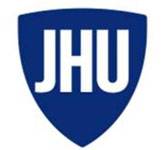 Johns Hopkins University is a private research university with a 140-acre campus in Baltimore, Maryland. Founded in 1876, it is associated with over 30 Nobel Laureates who have made significant contributions in the fields of Physiology or Medicine, Physics, and Chemistry. The University offers more than 50 undergraduate majors and 100+ graduate programs, with 80% of students participating in some form of research during their undergraduate careers.
Johns Hopkins University is a private research university with a 140-acre campus in Baltimore, Maryland. Founded in 1876, it is associated with over 30 Nobel Laureates who have made significant contributions in the fields of Physiology or Medicine, Physics, and Chemistry. The University offers more than 50 undergraduate majors and 100+ graduate programs, with 80% of students participating in some form of research during their undergraduate careers.
Notable Johns Hopkins Nobel Laureates
Woodrow Wilson
- Winner of the 1919 Nobel Peace Prize
- PhD in Political Science, 1886 (attended Princeton University for undergraduate studies)
- 28th President of the United States
Jody Williams
- Winner of the 1997 Nobel Peace Prize
- MA in Latin American Studies, 1984 (attended the University of Vermont for undergraduate studies)
- Awarded for her leadership in the International Campaign to Ban Landmines (ICBL), which helped lead to the adoption of the Ottawa Treaty
Richard Axel
- Winner of the 2004 Nobel Prize in Physiology or Medicine
- MD, 1971 (attended Columbia University for undergraduate studies)
- Known for his pioneering work on the molecular basis of the sense of smell
Connect me with Johns Hopkins!
Stanford University
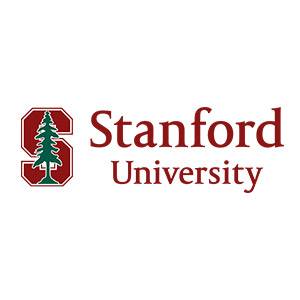 Stanford University is a private research institution with an over 8,000-acre campus in Stanford, California. Founded in 1891, Stanford boasts more than 70 Nobel Laureates with association to the College through study or research, with Physics, Chemistry, Economics, and Physiology/Medicine being the most represented categories. The University offers more than 65 undergraduate majors and nearly 150 graduate degree programs through its seven-school university system.
Stanford University is a private research institution with an over 8,000-acre campus in Stanford, California. Founded in 1891, Stanford boasts more than 70 Nobel Laureates with association to the College through study or research, with Physics, Chemistry, Economics, and Physiology/Medicine being the most represented categories. The University offers more than 65 undergraduate majors and nearly 150 graduate degree programs through its seven-school university system.
Notable Stanford Nobel Laureates
Eric Cornell
- Winner of the 2001 Nobel Prize in Physics
- BS in Physics, 1985 (attended Massachusetts Institute of Technology for graduate studies)
- Professor at the University of Colorado Boulder and a physicist at the United States Department of Commerce National Institute of Standards and Technology
Alvin Roth
- Winner of the 2012 Nobel Memorial Prize in Economic Sciences
- MS (1973) and PhD (1974) in Operations Research (attended Columbia University for undergraduate studies)
- Professor of Economics at Stanford and of Economics and Business Administration at Harvard University
Richard E. Taylor
- Winner of the 1990 Nobel Prize in Physics
- PhD in Physics, 1962 (attended University of Alberta for both his BS and MSc)
- Known for pioneering investigations into the development of the quark model of particle physics
Princeton University
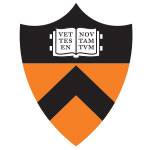 Princeton University is a private Ivy League research university on a 600-acre campus in Princeton, New Jersey—50 miles southwest of New York City. Founded in 1745, Princeton has graduated or employed around 80 Nobel Prize winners who have won the coveted award in almost every category. The University offers BA and BSE degrees with over 30 concentrations as well as 50+ interdisciplinary certificate programs.
Princeton University is a private Ivy League research university on a 600-acre campus in Princeton, New Jersey—50 miles southwest of New York City. Founded in 1745, Princeton has graduated or employed around 80 Nobel Prize winners who have won the coveted award in almost every category. The University offers BA and BSE degrees with over 30 concentrations as well as 50+ interdisciplinary certificate programs.
Notable Princeton Nobel Laureates
Eugene O'Neill
- Winner of the 1936 Nobel Prize in Literature
- BA in English Literature, 1910
- Writer of influential works in American theater, including plays like Long Day's Journey into Night and The Iceman Cometh
Frances Arnold
- Winner of the 2019 Nobel Prize in Chemistry
- BS in Mechanical & Aerospace Engineering, 1979 (attended the University of California, Berkeley for graduate studies)
- Co-chair of the President's Council of Advisors on Science and Technology
John Forbes Nash Jr.
- Winner of the 1994 Nobel Prize in Economic Sciences
- PhD in Mathematics, 1950 (attended Carnegie Mellon University for undergraduate studies)
- Known for his contributions to partial differential equations and the mathematics of game theory
The University of Chicago
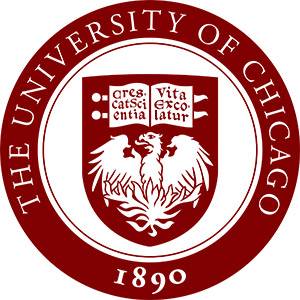 The University of Chicago is a private research university on a 217-acre campus just south of downtown Chicago, Illinois. Founded in 1890, the University is associated with around 90 Nobel Laureates, with multiple awards for Physics, Chemistry, Physiology/Medicine, and Economics. UChicago offers over 50 majors and more than 40 minors as well as double majors, interdisciplinary programs, and the option to create your own major.
The University of Chicago is a private research university on a 217-acre campus just south of downtown Chicago, Illinois. Founded in 1890, the University is associated with around 90 Nobel Laureates, with multiple awards for Physics, Chemistry, Physiology/Medicine, and Economics. UChicago offers over 50 majors and more than 40 minors as well as double majors, interdisciplinary programs, and the option to create your own major.
Notable UChicago Nobel Laureates
Tsung-Dao Lee & Chen-Ning Yang
- Winners of the 1957 Nobel Prize in Physics (the first two Chinese Laureates in history)
- Lee: PhD in Physics, 1950 (attended Zhejiang University and National Southwestern Associated University for undergraduate and graduate studies); Yang: PhD in Physics, 1948 (attended National Southwestern Associated University and Tsinghua University for undergraduate and graduate studies)
- Known for the Lee-Yang theorem on parity in particle physics
George Stigler
- Winner of the 1982 Nobel Memorial Prize in Economic Sciences
- PhD in Economics, 1938 (attended the University of Washington for undergraduate studies and Northwestern University for graduate studies)
- Key leader of the Chicago School of Economics and best known for developing “The Economic Theory of Regulation”
James Watson
- Winner of the 1962 Nobel Prize in Physiology or Medicine
- BS in Zoology, 1947 (attended Indiana University in Bloomington for graduate studies)
- Known for his work with his team in discovering the double-helix structure of DNA
Columbia University
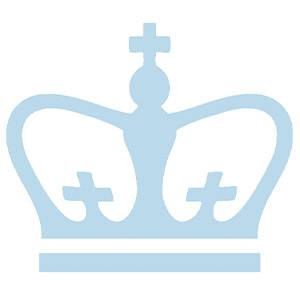 Columbia University is a private Ivy League research university with a 36-acre campus located in the heart of New York City, New York. Founded in 1754, Columbia is associated with around 100 Nobel Laureates, with the highest number of winners for Physics, Chemistry, and Economics. The University offers more than 100 majors and concentrations, including a range of interdisciplinary and joint programs, plus hundreds of academic and research opportunities for undergraduate and graduate students.
Columbia University is a private Ivy League research university with a 36-acre campus located in the heart of New York City, New York. Founded in 1754, Columbia is associated with around 100 Nobel Laureates, with the highest number of winners for Physics, Chemistry, and Economics. The University offers more than 100 majors and concentrations, including a range of interdisciplinary and joint programs, plus hundreds of academic and research opportunities for undergraduate and graduate students.
Notable Columbia Nobel Laureates
Barack Obama
- Winner of the 2009 Nobel Peace Prize
- BA in Political Science with specialties in International Relations and English Literature, 1983 (attended Harvard University for graduate studies)
- 44th President of the United States
Edward Calvin Kendall
- Winner of the 1950 Nobel Prize in Physiology or Medicine
- BS (1908), MS (1909), and PhD (1910) in Chemistry
- Known for his contributions to biochemistry and medicine through hormone research with the Mayo Clinic
Isidor Rabi
- Winner of the 1944 Nobel Prize in Physics
- MS and PhD (1927) in Physics (attended Cornell University for undergraduate studies)
- Chairman of the Science Advisory Committee under Dwight D. Eisenhower and known for the discovery of nuclear magnetic resonance
Other schools with the most Nobel Prize winners
We couldn't exclude mentioning these colleges and universities that are also associated with an impressive number of Nobel Laureates.
- Harvard University: Founded in 1636 in Cambridge, Massachusetts, Harvard is the world's leading Nobel Prize–producing institution, with more than 160 associated Nobel Laureates across categories such as Literature, Peace, Physics, Chemistry, and Economic Sciences.
- The University of Cambridge: This renowned British institution has produced more than 125 Nobel laureates, particularly for Physics, Chemistry, and Physiology or Medicine.
- Massachusetts Institute of Technology: A private research university also located in Cambridge, Massachusetts, MIT is associated with 95+ Nobel Laureates who've made significant contributions to Physics, Chemistry, and Economics.
Related: Check out all our featured research colleges and universities by region
We hope you enjoyed learning about these schools and the outstanding graduates they’ve produced in honor of Nobel Prize Day, celebrated every year on December 10, the anniversary of Alfred Nobel’s death. Who knows—you may count yourself among this impressive list of alumni someday!
Explore even more schools based on other interesting and important criteria with our featured college lists, and be sure to create an account (or log back in) to connect with these amazing colleges and universities!

